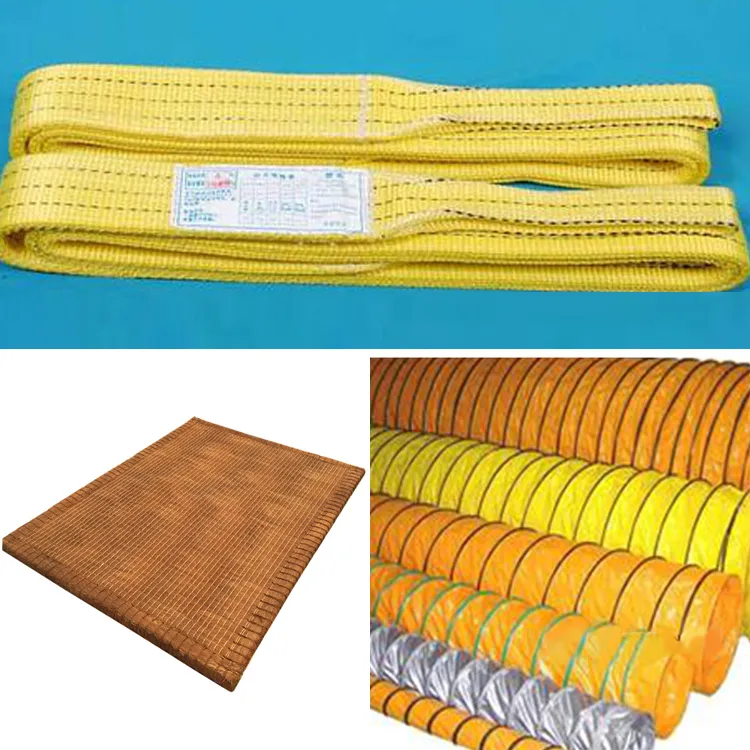Advancements in CNC Programmable Sewing Machines for Efficient Textile Production
The Rise of CNC Programmable Sewing Machines
In the ever-evolving landscape of textile manufacturing, the introduction of CNC (Computer Numerical Control) programmable sewing machines has marked a significant milestone. These advanced machines have transformed the way garments are produced, offering unprecedented precision, efficiency, and adaptability. This article delves into the functionalities and benefits of CNC programmable sewing machines, as well as their impact on the textile industry.
Understanding CNC Programmable Sewing Machines
CNC programmable sewing machines are specialized sewing devices that use computerized controls to perform sewing operations with high accuracy. Unlike traditional sewing machines that require manual adjustments and guidance from operators, CNC machines follow pre-programmed instructions to execute precise stitching patterns. This technology allows manufacturers to produce intricate designs and complex garment features with minimal human intervention.
The heart of a CNC sewing machine lies in its software and hardware integration. The sewing process is driven by a computer that interprets design files, often created in CAD (Computer-Aided Design) programs. The machine can then automatically adjust parameters such as thread tension, needle position, and stitching speed to execute the designed pattern flawlessly. This automation reduces the risk of human error and enhances production consistency.
Benefits of CNC Programmable Sewing Machines
1. Increased Precision and Quality One of the most significant advantages of CNC programmable sewing machines is their ability to maintain exact stitching standards. They can execute intricate designs and repetitive patterns with high accuracy, resulting in superior quality garments. This precision is especially important in high-end fashion and technical textiles, where even the slightest variation can affect the product's integrity and appeal.
2. Enhanced Productivity CNC sewing machines can operate continuously with minimal downtime. They can produce garments at a much faster rate than traditional machines, significantly increasing throughput. Manufacturers can meet tight deadlines and larger production volumes, which is crucial in today’s fast-paced fashion industry.
cnc programmable sewing machine

3. Flexibility and Customization With their programmable capabilities, CNC sewing machines can easily switch between different designs and sizes. This flexibility allows manufacturers to accommodate custom orders and small batches without the need for extensive retooling. As a result, businesses can cater to unique customer preferences and quickly adapt to changing market trends.
4. Reduced Labor Costs Although the initial investment for CNC technology may be higher than conventional sewing machines, the long-term savings on labor costs can be substantial. By automating repetitive tasks, manufacturers can allocate human resources to more complex operations that require creativity and problem-solving skills. Additionally, the reduced dependency on skilled labor mitigates the risks associated with labor shortages.
5. Sustainability CNC programmable sewing machines can contribute to more sustainable manufacturing practices. With precise material usage, these machines minimize fabric waste, a significant concern in the textile industry. By optimizing patterns for cutting and sewing, manufacturers can reduce their environmental footprint while maximizing the use of raw materials.
Challenges and Considerations
Despite their numerous benefits, the adoption of CNC programmable sewing machines is not without challenges. The initial setup cost can be significant, and there may be a learning curve for operators transitioning from traditional to CNC technology. Additionally, maintaining and repairing these sophisticated machines requires a specialized skill set, which can pose a challenge for some manufacturers.
Furthermore, the integration of CNC sewing machines within existing production lines demands careful planning. Manufacturers must consider how to balance automation with traditional sewing techniques, especially in aspects where human intuition and craftsmanship are irreplaceable.
Conclusion
CNC programmable sewing machines represent a significant advancement in the textile manufacturing industry. With their ability to produce high-quality garments with speed, precision, and flexibility, these machines have become invaluable assets for modern manufacturers. As the demand for customized and sustainably produced clothing continues to rise, the role of CNC technology is set to expand even further, shaping the future of textile production. Embracing this technology will be essential for businesses aiming to thrive in the competitive landscape of fashion and apparel manufacturing.
-
Industrial Cylinder Arm Sewing Machine: Revolutionizing Heavy-Duty SewingNewsJul.28,2025
-
Cylinder Arm Sewing Machine: Perfect for Special Sewing ApplicationsNewsJul.28,2025
-
Cylinder Bed Sewing Machine: Essential for Sewing Complex MaterialsNewsJul.28,2025
-
Heavy Duty Sewing Machine: The Essential Tool for Industrial ApplicationsNewsJul.28,2025
-
Computerized Pattern Sewing Machine: Revolutionizing Precision StitchingNewsJul.28,2025
-
Heavy Duty Industrial Sewing Machine: Power Meets PrecisionNewsJul.28,2025
-
Leather Sewing Machine: The Industrial Standard for Tough MaterialsNewsJul.18,2025





























